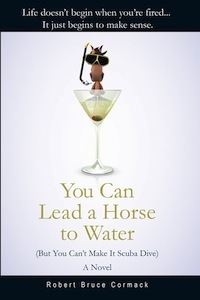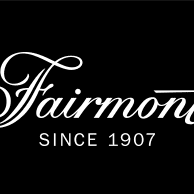Is This Racist Advertising?

Racism isn’t something I normally talk about. I grew up in a predominantly white neighborhood back in the fifties, conservative, civil, benign the way Christmas Parades are benign. It wasn’t until my family took me to Los Angeles that I heard a man refer to blacks as “n — rs.” My parents told me he wasn’t a very nice person. I didn’t think so, either. I was eight years old.
Throughout university and my early career, I rarely experienced racism. There was the news, obviously. I knew it existed, but not in the quiet domains of my life. I was untouched. Part of me even believed I’d remain untouched until one night, coming home on the subway, a black woman tried to sit down next to an elderly white woman. The elderly woman jumped up and said, “I won’t sit next to a n — r.” I remember she slurred her words. Someone told her to go find a white car.
I still convinced myself it was an aberration. We were too far along, too far advanced. The stalwarts, the faded southern belles, the rednecks mashing beer cans against their foreheads, they were an anomaly. Surely we were beyond can mashers, right wing nihilists and tent evangelists?
I had black friends, learned that black — at least Caribbean black — could be “one of many people.” These were mulattos, octoroons and quadroons. They didn’t like being called “African American.” That was too far back in their lineage. Even being called the n-word didn’t apply.
When I hear people say that racism is still endemic, that we haven’t advanced, I think back to my early years in advertising. This was the late seventies. I was working for a big agency. Maybe I still felt untouched, or maybe there were things I didn’t want to see. Maybe we all did back then.
I remember one day, sitting in a boardroom with the advertising manager of a car account (I’ll keep the name out of it). We’d just been sent the latest car shots from our Chicago division. One photo stood out from the rest. It featured a black car in front of an adobe house, the New Mexican desert drawing a sharp distress line against a bright blue sky. Standing beside the car was a black man in a tuxedo. The light drew hard contrasts.
The advertising manager, an older guy, ran his big farmer hands along his jaw. He nodded his approval. He stood up and said to the account director, “You know what to do, Burt.” After he left, I asked Burt what he meant by that. Burt said, “We have to take out the black man.”
There were no black people in any of the advertising that launch year. Blacks made up twenty percent of the car-buying public. Cultural representation hadn’t even crossed the client’s mind. “You know what to do, Burt,” seemed like a throwback mantra, one that left a bad metallic taste, sort of like sucking on a penny.
It wouldn’t last, of course. The “straw men” retired and died. In their place were the more culturally accepting. Maybe they were accepting, or maybe they just understood economics. Like politicians, they knew you don’t ignore numbers. So the mosaic became recognized — not necessarily appreciated or respected — but recognized and therefore represented.
It would become common to hear, “This commercial doesn’t show enough ethnicity.” Casting became a mosaic homage. You could hear people in production meetings saying, “What about a Korean?”
They say advertising “reflects the times,” but the Bernbachs and Ogilvys of advertising would say “it leads the times.” We’re not in the business of banner-waving. We’re in the business of numbers. If you’re seeing more blacks in advertising, that’s the numbers talking. They dictate our future.
At a creative conference down in Chicago, we were asked to come up with concepts for a milk product. At seven o’clock in the morning, having worked all night, a chief creative officer from New York came to look at our campaign. He shook his head. “Go back to your research,” he said. “Seventy percent of your audience is Spanish-American. Where are they here?”
We’re not morally driven, we’re consumer driven. Power is in the hands of those who purchase. Racial equality is no longer fought on the steps of the Washington Monument, its fought in the stores, it’s fought with a piece of plastic. Anybody thinking otherwise doesn’t understand economics.
Bill Bernbach once said, “All of us who professionally use the mass media are shapers of society. We can vulgarize society. We can brutalize it. Or we can lift it to a higher level.”
Since we’re all using mass media today, we’re all “shapers” to some extent. No cast or color is excluded. We can shape whatever we want, whenever we want, whether it’s advertising or the world in general.
Sure, we can vulgarize, we can brutalize. So much of what I see does that. But if we truly want to lift society to a higher level, if we want equality, if we want justice, we have to know our own power. That power is in our presence and what we do with it.
To simply saying “nothing’s changed,” isn’t true. Think of that car meeting I mentioned back in the seventies. Imagine a client demanding a black man be airbrushed out today. It wouldn’t happen because, above all, we’re realists. The “straw men” are gone for the most part. They still exist in governments, but we know governments don’t run countries anymore.
A wise man once said, “When you climb a mountain, you look down occasionally and realize you see more than you did even ten feet below. Climb higher and you see even more. It’s incremental.”
The way I see it, especially now, we exist — not in a village — but a global village. Our power is in that range and coverage. How we use it, racially or commercially, is entirely up to us.
We simply have to climb higher.
What do you think? Can we elevate or are we set on vulgarizing and brutalizing? Let me know at: rcormack@rogers.com
Robert Cormack is a freelance copywriter, blogger and novelist. His first novel “You Can Lead a Horse to Water (But You Can’t Make It Scuba Dive)” is available online and at most major bookstores. Check out Yucca Publishing or Skyhorse Press for more details (you can also order from them).

Articles from Robert Cormack
View blog
Is “Succession” explaining Russia's leader better than the media? · “In modern war, you will die lik ...

Without selling yourself short. · “We marry, have kids, do our jobs, provide food, education. Job do ...

This world is getting very stupid and we might die wondering if this was the plan. · “Life is like a ...
You may be interested in these jobs
-

Barman (H/F/D) - Du 1er mai au 15 octobre 2024 (saisonnier)
Found in: Talent CA C2 - 6 days ago
FAIRMONT Montebello, Canadadu poste · Le barman est l'ambassadeur de la qualité du service et de l'harmonie des saveurs caractéristiques de nos restaurants et bars. Votre service chaleureux, attentionné et votre passion pour la mixologie y seront célébrés à leur juste valeur. · Votre rôle : · Service des ...
-

Electrical Engineering Technologist
Found in: beBee S2 CA - 2 weeks ago
BBA inc. Victoria, Canada Full timeType of position: Régulier · Your future role on our team · The Senior Field Services Specialist position will include · the leadership and execution of various maintenance, installation, · configuration, testing, troubleshooting, and commissioning activities routinely · conducte ...
-

Gérant·e de quart
Found in: Talent CA C2 - 12 hours ago
McDonald's Perth, CanadaNous sommes bien plus que simplement votre restaurant local. Nous sommes un regroupement de propriétaires dévoués de petites entreprises. · Le saviez-vous? D'un océan à l'autre, nous offrons chaque jour de délicieux choix alimentaires à plus de 2,5 millions de personnes dans plus ...
Comments
Robert Cormack
7 years ago #1